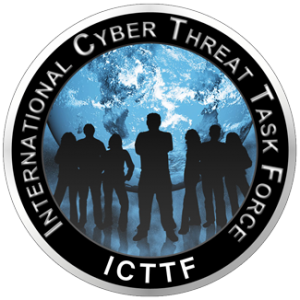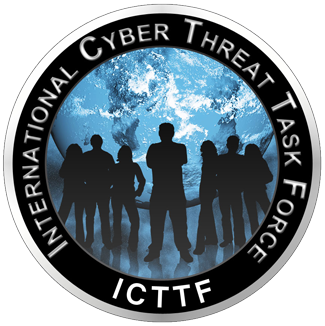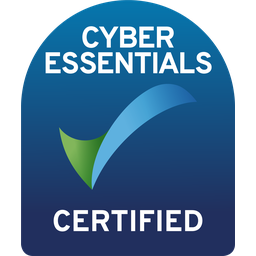

Company Profile
Using this, topology diagrams are generated to show layers of network connectivity; queries can be leveraged against this data to understand end-to-end behavior. Accurate network data massively reduces risk and resource strain ever-present in digital transformation strategies. This impact is felt across an organization, from on-the-ground, tactical network operators to future-conscious decision-makers, who, with IP Fabric, can ground their strategy in real data.The novel approach of the product is the support of all control-plane protocols and technologies, covering both configuration and state. This normalizes vendor-specific output into standards-based representations, which allows the expression of operational intent for the organization globally, serving as a repository of operational standards.
IP Fabric provides both a high-level overview and granular detail of your network state by creating a unique and flexible network model, which can be used to detect critical violations and business-impacting inefficiencies and verify policy compliance. This contextualized data about your network can be used to fill gaps in existing tooling ecosystems and set enterprises on the path to a self-driving network.IP Fabric is unprecedented in its category thanks to the approach we take when developing our network assurance platform; we look at the network through the eyes of the engineer and focus on solving their problems. With this as a central focus, the benefits for other teams (C-suite, security, cloud teams, etc.) fall into place, and we know this through hands-on experience - a collective century plus of hands-on networking experience - with the very issues we solve.Additionally, we are integration focused; our deep understanding of the tooling ecosystems that most enterprises have means that IP Fabric is designed to enhance, leverage, and fill the gaps in the tooling you already have in place, expanding on their value and enabling different ways of interacting with your tooling – limitless, innovative, “never knew this was possible” ways that we hear from our customers all the time.
IP Fabric has three stages of adoption; baseline, operate, and innovate. After establishing a network baseline and using this to augment existing network operations, our customers become set for stage three – innovation. Here, network teams can start putting data intelligence from IP Fabric to work through integrating via API to the rest of their tooling ecosystem. At this point – with an automated, transparent network that is continuously aligned with your intent – the possibilities for innovation become endless.
DORA (CoE) - IP Fabric
As the DORA Compliance Deadline draws closer so to does your opportunity to deal with the challenges related to DORA compliance by attending the EU DORA Summit. There you will have the opportunity to not only partake in a full days training and gain CPD points BUT you will have the opportunity to engage with the worlds best DORA experts, innovators and solution providers at the DORA Expo Zone.
This DORA Centre of Excellence is comprised of the “best of the best” - you can ask questions, gain insights and see demonstrations of their solutions.
In this newsletter, we want to shine the “DORA Spotlight” on IP Fabric - let’s consider why automated network assurance solutions are an integral part of DORA Compliance.
An automated network assurance platform can significantly contribute to DORA compliance by enhancing the operational resilience of financial entities against ICT-related disruptions and threats. Here's how such a solution helps align with DORA's objectives and requirements:
ICT Risk Management: DORA mandates a comprehensive approach to ICT risk management. An automated network assurance platform can provide continuous monitoring and assessment of network health, performance, and security, enabling financial entities to identify, assess, and mitigate ICT risks proactively.
ICT-Related Incident Management: The ability to quickly detect, respond to, and recover from ICT-related incidents is a core requirement of DORA. Automated network assurance platforms can facilitate rapid detection of anomalies and potential security incidents, allowing for swift incident response and minimizing the impact on operations.
Digital Operational Resilience Testing: DORA requires firms to conduct regular testing to ensure their digital operations can withstand ICT disruptions. Automated network assurance platforms can support resilience testing by simulating cyber threats and network failures, providing insights into the network's ability to maintain operations under adverse conditions.
Information and Intelligence Sharing: Sharing information about cyber threats and vulnerabilities is encouraged under DORA to enhance collective resilience. Automated network assurance platforms can contribute by identifying new threats and vulnerabilities within the network infrastructure and sharing this intelligence with relevant stakeholders.
Management of ICT Third-Party Risk: DORA emphasises the importance of managing risks associated with third-party ICT service providers. An automated network assurance platform can help ensure that third-party networks comply with security policies and standards, reducing the risk of supply chain attacks.
Compliance and Oversight: With DORA establishing a regulatory framework for consistent oversight across the EU, automated network assurance platforms can provide detailed reporting and analytics to demonstrate compliance with DORA requirements, aiding in regulatory submissions and audits.
Let's delve into how an automated network assurance platform aligns with specific DORA articles and contributes to compliance:
Article 31(2)(c) of DORA - This article discusses the criteria for identifying critical ICT third-party service providers. An automated network assurance platform can help financial entities in assessing and managing the risks associated with their ICT third-party service providers by continuously monitoring the health, performance, and security of the network. This ensures that any potential risks posed by these providers are identified and mitigated promptly.
Article 5(2) of DORA - Governance and organisation requirements under DORA mandate that the management body of a firm ratifies, supervises, and routinely assesses the execution of the firm's ICT business continuity policy and ICT response and recovery plans. An automated network assurance platform supports this by providing real-time insights into network performance and security, enabling the management body to make informed decisions regarding ICT governance and to ensure that policies and plans are up-to-date and effective.
Chapter V, Section II of DORA - This section outlines the Oversight Framework for critical ICT third-party service providers. Automated network assurance platforms can play a crucial role in ensuring compliance with this section by offering tools for continuous oversight and management of third-party service providers' network performance and security, aligning with the regulation's emphasis on the oversight of critical ICT service providers.
By leveraging an automated network assurance platform, financial entities can enhance their compliance with these specific articles of DORA. The platform's capabilities in monitoring, managing, and securing network infrastructure align with DORA's objectives of ensuring operational resilience in the financial sector, particularly in managing ICT risks, ensuring business continuity, and overseeing third-party ICT service providers.
You can meet the team from IP Fabric at this year’s EU DORA Summit and ask them directly about how they are helping organisations with their DORA compliance requirements.

HEAD OFFICE
-
ICTTF Ltd
Unit 8, Kinsealy Business Park,
Kinsealy Lane,
Malahide,
Co Dublin
K36 CX92 -
info@icttf.org
support@icttf.org -
+353 (0)1 905 3263
